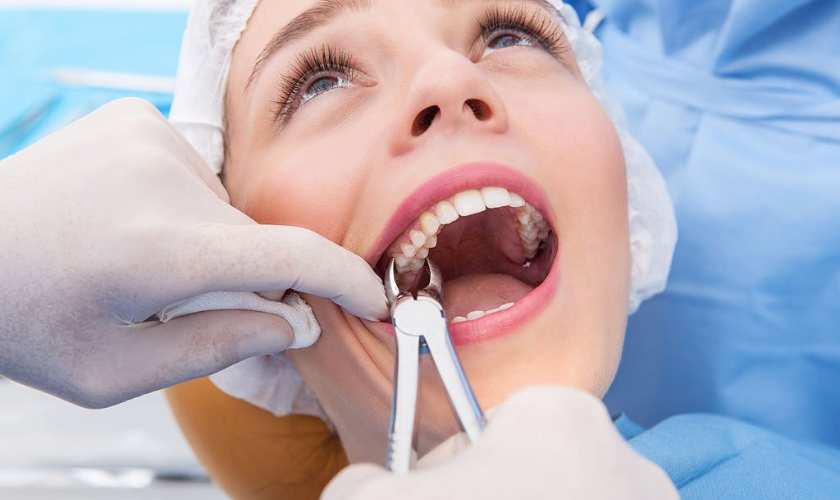$99 New Patient Special - Includes Exam, X-Ray and Basic Cleaning
Do All Wisdom Teeth Need To Be Removed? Myths Vs. Facts

Wisdom teeth often spark confusion and anxiety, especially when removal is suggested. These molars, typically erupting between ages 17 and 25, can cause problems depending on their position and health. The internet is full of myths about whether they always need removal or if keeping them is fine. This blog aims to debunk myths, uncover facts, and guide you through making an informed decision. If you’re curious about the truth behind wisdom teeth removal, keep reading to understand when it’s necessary and when it’s not.
Myth: All Wisdom Teeth Must Be Removed
Many people believe molar teeth are always problematic. However, that’s not always true. Removal depends on individual circumstances:
- When Removal is Needed:
- Impacted teeth causing pain or infection.
- Crowding or damage to adjacent teeth.
- Cysts or decay affecting oral health.
- When They Can Stay:
- Fully erupted and aligned teeth.
- No signs of decay or gum issues.
- Healthy functioning is part of your bite.
Consult a dentist to evaluate whether removal is necessary for you.
Myth: Wisdom Teeth Always Cause Pain
Pain isn’t a universal sign of wisdom teeth trouble. Many molar teeth remain asymptomatic.
- Painful Situations:
- Swelling from impaction.
- Infections due to trapped food or bacteria.
- No Pain, No Problem?
Painless back molars can cause silent damage, such as pushing adjacent teeth. Regular dental check-ups are crucial to avoid hidden issues.
Fact: Impacted Wisdom Teeth Can Be Harmful
Impacted teeth are those stuck under gums or against other teeth. These can lead to:
- Infections or abscesses.
- Misalignment of existing teeth.
- Sinus pressure or headaches in severe cases.
Early wisdom teeth removal can prevent long-term complications if your dentist identifies impacted back molars.
Myth: Removal Is Always an Emergency
Urgency varies depending on symptoms and risks.
- Emergencies Requiring Immediate Attention:
- Severe pain or swelling.
- Signs of infection like fever or discharge.
- Scheduled Removal Works for:
- Teeth showing potential issues in X-rays.
- Preventing crowding during orthodontic treatments.
Proactive dental care can save you from unexpected emergencies.
Fact: Recovery Isn’t Always Painful
Worrying about pain post-removal is common. While discomfort is expected, modern techniques make recovery manageable.
- What to Expect:
- Mild swelling and tenderness for a few days.
- Follow aftercare instructions for faster healing.
- Tips for Easier Recovery:
- Use ice packs for swelling.
- Stick to soft foods and avoid smoking.
- Maintain oral hygiene without disturbing the site.
Myth: Everyone Loses All Four Molar Teeth
Not everyone has four wisdom teeth. Some people have fewer or none at all. Genetics plays a significant role in how many you develop.
- Common Scenarios:
- Missing one or more wisdom teeth is normal.
- Some wisdom teeth never fully develop.
A panoramic X-ray is the best way to know your wisdom teeth status.
Fact: Early Evaluation Prevents Bigger Problems
The earlier molar teeth are evaluated, the better. Dentists can spot potential issues before they become serious.
- Why Early Monitoring Helps:
- Prevents complications during adulthood.
- Allows for simpler procedures in younger patients.
If you have no symptoms, scheduling regular dental check-ups ensures your molar teeth remain problem-free.
Not all wisdom teeth need to be removed, but proactive care is essential. Consulting your dentist ensures your oral health stays on track, whether or not removal is necessary. Avoid falling for myths and rely on facts to make informed decisions.
Curious about your back molars? Visit our dental office for a thorough evaluation and personalized guidance. Call us today to schedule your consultation!







